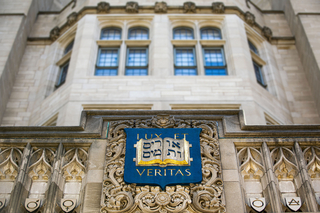Marine Carbon Dioxide Removal Intern
Overall Function
There is an urgent need to reduce greenhouse gas (GHG) emissions and remove GHGs from the atmosphere. Studies are underway to quantify the potential of a wide range of marine carbon dioxide removal (mCDR) strategies to boost the carbon sequestration capacity of the ocean for global climate impacts. mCDR research is met with both interest and concern by coastal communities and existing ocean users due to potential impacts on ecosystems, marine resources, and local livelihoods, and evaluating these impacts will require information from diverse sources. While data transparency and engagement of stakeholders are cited as core principles of the mCDR research enterprise, the technical (e.g., data portals, visualizations) and non-technical (e.g., websites, reports) pipelines to enable engagement in service of fostering informed decision making remain in early stages of development.
The intern will conduct a landscape analysis of information needs across different stakeholder groups with the goal of identifying the types of technical information pertaining to mCDR methods and their impacts that would assist stakeholders in better engaging with the topic. The intern will also examine existing mCDR information and data portals to evaluate the extent to which these information pipelines meet stakeholders’ needs and are accessible. The research will be geographically bounded, leveraging existing EDF partnerships and collaborations across New England, Washington State, and California, and focus initially on coastal communities and marine industry organizations as specific stakeholder groups. This analysis will inform strategies for engagement with stakeholder groups, including the types of information mCDR industry participants and data stewards should strive to collect and share, and the means through which they should be shared to maximize accessibility and transparency. The intern will report to the Marine Biogeochemical Scientist and be an integral part of the Blue Carbon team.
Key Responsibilities
Tasks will include but are not limited to:
- Research and synthesize ocean stakeholder concerns and information needs through review of public comments to permitted mCDR deployments, literature reviews, and informational interviews.
- Conduct informational interviews with mCDR data generators, regional ocean observing data providers, and data scientists.
- Work with experts on the Ocean Sciences team, EDF, and external partners to identify best practices for data and information collection and sharing for mCDR.
- Contribute to writing a report/paper detailing stakeholder engagement activities.
- Participate in team meetings and check-ins, and function as a fully integrated team member.
- Participate in advancing EDF Diversity, Equity, and Inclusion (DEI) goals in which people from all backgrounds and experiences feel connected, included, and empowered to address the environmental and organizational challenges in alignment with EDF values.
Qualifications
- Current or recent Master’s level graduate student with coursework and/or experience in coastal resource management, environmental policy, environmental science, or other relevant fields.
- Demonstrated interest in finding solutions to environmental problems.
- Demonstrated experience in conducting literature review.
- Excellent written and oral communication skills.
- Experience in conducting in-person interviews
- Must be well organized, motivated, and detail oriented.
- Ability to multi-task, prioritize and meet deadlines.
- Ability to work in a team setting and independently when projects are due.
- Understanding of oceanography, ocean data, and ocean observing techniques a plus but not required
- Demonstrate self-awareness, cultural competency and inclusivity, and ability to work with colleagues and stakeholders across diverse cultures and backgrounds.
- Demonstrate initiative and problem-solving skills.
Background
EDF internships provide high-quality experiences (including relevant projects and opportunities for networking) that form the foundation for any individual who is serious about pursuing an environmental career.
The goal of EDF’s Ocean Science Program is to deliver the science that will help build resilient oceans that provide more fish in the water, more - and more secure - food on the plate and more prosperous fishing communities, all over the world, even with climate change. In recent years, we have focused on the science behind robust transformations of fisheries management in the U.S., China, Japan, Indonesia, the Philippines, Mexico, Peru, Chile, Belize, Cuba and Europe, working in partnership with diverse stakeholders and coastal communities. Scientific priorities include developing new approaches to understand and address the effects of climate change on marine ecosystems, including not only resilient fisheries, but also complementary engagements that enhance marine and coastal ecosystem resilience and human wellbeing, especially for disadvantaged and vulnerable populations.
